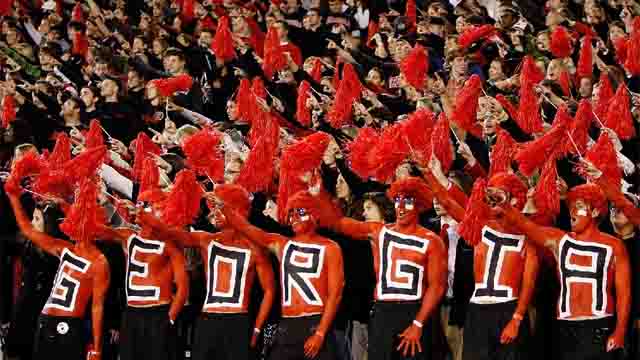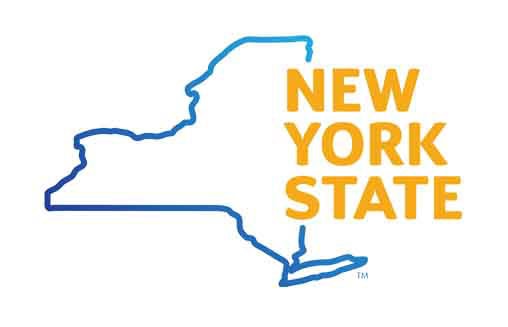headlines
How A Reversal On NJ Sports Betting Case Could Affect Nevada Sportsbook Industry

To the surprise of online gambling operators and prominent legal experts in the field, the U.S. Supreme Court announced that it will review the court ruling that blocks New Jersey based sports gambling. It was the 3rd U.S. Circuit Court of Appeals that ruled against the law initially because they considered it to be in direct contention with the federal law that prohibits state based sports wagering in all but 4 states, The Professional and Amateur Sports Protection Act of 1992 (PASPA).
PASPA has long been considered unconstitutional by legal proponents of the online gambling community and the American Gaming Association which has most of Las Vegas’ major gambling money makers as members. If a law in New Jersey that was ruled in direct opposition of PASPA is reinstated, this likely means it might also lead to national repeal of PASPA and open the option for legal sports betting across all states.
Some might be brought to question if this is even a good thing for Nevada. If all the states are opened up to legalized sports betting at the state level, it certainly means that some of that business might go elsewhere. Industry leaders in Nevada argue the exact opposite.
They posit that if and when the national prohibition on sports betting ends, it would have more of a detrimental effect on the legal offshore gambling websites currently providing sports betting services to US residents than in the four states that are legally allowed to have them currently. They remain confident that Nevada will maintain their status as the top dog in the American sports wagering world.
The infrastructure in Nevada for sports betting is already established and would be able to adapt to a national level much faster than brands just starting out in the industry. Companies like William Hill and MGM who have already embraced online sports wagering, live betting, and mobile optimization of sports gambling are already primed and ready to create a national sports betting brand. People will undoubtedly still flock to Las Vegas for the complete experience at the highest rated sports gambling establishments in the country.
However, the Supreme Court’s review of the New Jersey law that could lead to the repeal of PASPA might go exactly the opposite way. According to one theory by legal experts, Ryan Rodenberg and John Holden, one possible scenario of the review might lead to what’s known in the legal community as “equal sovereignty”. The “equal sovereignty doctrine” that has been used in the US courts before means that the federal government must treat all the states equally.
If the review concludes with the legal opinion that PASPA is constitutional and it does not get repealed, there is a case to be made for equal sovereignty. This means that those states that are currently allowed to regulate sports wagering legally would no longer be exempt from the law that gives them those rights because other states won’t have them either.
To further muddy the waters, the pending GAME Act and/or RAWA would all have a national impact on sports wagering within the US. Regardless of which direction all of this goes, legally licensed offshore gambling sites accepting US players will still be available to offer the same services to American bettors that they’ve been providing thus far.
headlines
AU Influencers Warned Against Promoting Gambling Sites

 The Australian Communications and Media Authority (ACMA) has warned social media stars against promoting illegal gambling sites online as they could face multi-million-dollar fines in the country.
The Australian Communications and Media Authority (ACMA) has warned social media stars against promoting illegal gambling sites online as they could face multi-million-dollar fines in the country.
Recently, influencers have increasingly used Instagram, TikTok, and Facebook to promote unlicensed online casinos and gambling services. In today’s modern world, online sites have become less authoritarian and do not moderate what account holders post unless they blatantly break the terms and conditions.
While offshore gambling from licensed sites is not illegal, numerous other sites that are not licensed will accept AU players.
AU Gambling Laws
According to the Interactive Gambling Act 2001, only licensed operators can provide online sports betting and specific lotteries within Australia. All other types of online gambling, including casino games such as slot machines, blackjack, and in-play sports betting, are prohibited.
ACMA has noted an increase in influencers live-streaming on unlicensed platforms, linking illegal gambling sites, and promoting giveaways related to these services. The ACMA has recently warned that promoting or facilitating illegal gambling could result in penalties up to AU$2.5m (£1.1m).
Licensed Offshore Gambling Sites
Offshore casinos operate legally from their country of origin and have been accepting players from around the world since the early 2000s. Trusted regulatory agencies license legitimate offshore betting sites, which are subject to regular compliance checks.
Based on our observations, online casinos tend to provide more attractive bonus offers and promotions than local casinos in Australia. Although each territory has at least one casino, they are not as readily accessible as online services. Since the law does not deem online gambling illegal from international brands outside the country, many players turn to better resources.
Can I Trust An Offshore Casino?
Offshore casinos are reliable, provided you play at a licensed site. Since they function outside Australian jurisdiction, local gaming authorities do not regulate them, meaning there is no legal recourse available if issues arise. However, many offshore casinos hold licenses from international bodies such as Curacao eGaming or the Panama Gaming Commission, and many have established strong reputations for fairness, prompt payouts, and robust security.
To safeguard your interests when considering an offshore casino:
- Verify a license
- Research independent reviews
- Verify secure banking options
- Be aware of red flags (No SSL, No player protections)
headlines
No Sports Betting Bill For GA; Offshore Gambling Continues

 The state of Georgia has long been one of the top markets for offshore betting sites. It is the eighth most populated state in the US and currently has no domestic wagering options.
The state of Georgia has long been one of the top markets for offshore betting sites. It is the eighth most populated state in the US and currently has no domestic wagering options.
While prominent Georgians were hoping to pass a new bill allowing domestic sportsbooks, the state legislature has elected to forego voting for yet another legislative session.
House Bill 686 was a legislative act designed to permit retail and mobile sports wagering by extending the Georgia Lottery’s authority. The adjacent House Resolution 450 would have also put the issue before voters; however, both the Bill and the Resolution are dead.
Rep. Chuck Martin of Alpharetta told the media that the legislation came in late, and lawmakers weren’t there yet. He also stated, “We’ll keep working with people and trying to do what’s in the state’s best interest.”
Georgia’s Sportsbook Potential
Georgia has over 11 million residents and is considered a top legislative target for domestic sportsbooks alongside California and Texas. Today, 39 states (+ Washington D.C.) have domestic sports betting options.
With three professional sports teams and several prominent college teams, Georgia could benefit from the additional revenue generated by licensing domestic sportsbooks. Additionally, several polls conducted throughout the state indicate that most residents favor passing domestic sports betting bills.
Online Sports Betting For GA residents
The state of Georgia has been allowing offshore sportsbooks to service their players since the late 1990s, as no laws make them illegal. While it is technically not legal, no laws forbid their access or create punishments for gambling online.
It is estimated that nearly 300,000 online sports betting accounts will remain active among GA residents in 2025. Popular wagering options include the NFL, NCAA, MLS, and NBA, as the state has a professional team in each of those leagues.
Until a domestic sports betting bill is passed in Georgia, Georgians only have the offshore option. While some people are wary of offshore sites, their concerns are often unwarranted, as the sites we vet and recommend adhere to tougher regulations from world-renowned gaming authorities that go above and beyond to ensure player protection.
However, if you choose to gamble online, make sure that you start small and never wager more than you can afford to lose. There is a reason so many of the sites we play and recommend have been around for several decades, and it’s not because they rip people off; it’s because they offer a quality service and fast “real money” payouts.
headlines
Ultimate Showdown: NYC Casino License Sees Two Bidders Fold

 Two bids for the coveted and highly sought-after New York City casino license, which will be awarded later this year, have scratched their plans due to vastly different reasons.
Two bids for the coveted and highly sought-after New York City casino license, which will be awarded later this year, have scratched their plans due to vastly different reasons.
Both Wynn Resorts and the Las Vegas Sands Corporation recently announced that they will no longer seek an NY casino license. However, there are still plenty of contenders in the running, including Bally’s and Caesars. Other contenders are also seeking the one casino license believed to be up for grabs.
New York recently approved three additional downstate casino licenses that will be awarded in Q4 of 2025. Two licenses are expected to go to established racinos, the Aqueduct and Yonkers Raceway. However, nothing is promised, and the bidding market is still full of high rollers looking to transform the local gaming options.
Wynn Resorts Drops NYC Casino Plans
A Wynn Resorts representative told news sources that the company has surrendered to “years of persistent opposition.” The company was planning on a posh Manhattan casino in Hudson Yard. They blamed the withdrawal on the rezoning process.
Las Vegas Sands Will No Longer Pursue NYC Casino Licensing
The Las Vegas Sands Corporation was the first big player to withdraw its bid in April 2025. The announcement, alongside its Q1 earnings report, stated that they are looking for a third party to take over the Nassau Coliseum casino conversion project. The Sands Corp. blamed the possibility of competition from iGaming, or online casino games, for dropping their bid.
MGM Resorts and Resorts World are considered leading contenders for securing two of the three licenses due to their existing gaming operations, which include slots only, without live tabletop games.
Online Casinos In New York
Today, there are only a handful of states that have online casinos operating from inside the US, and New York isn’t one of them. However, online casinos outside the states have accepted NY players since the early 2000s. While some international brands have elected not to service the state’s residents, plenty of reputable online casino apps will be accessible in 2025.
Several states have recently proposed allowing state-licensed casinos to operate online; however, no legislation has been passed so far this legislative season.
-

 headlines6 years ago
headlines6 years agoBitcoin Means Smooth Sailing For Offshore Sports Betting Sites
-

 headlines6 years ago
headlines6 years ago‘Game of Thrones’ bettors win big at offshore betting sites
-

 headlines6 years ago
headlines6 years agoHow To Know If An Offshore Gambling Site Can Be Trusted
-

 headlines6 years ago
headlines6 years agoWhy Offshore Betting Sites Will Not Be Affected By New USA Gambling Laws
-

 headlines5 years ago
headlines5 years agoOffshore is Still the Only Political Betting Option for USA Residents
-

 headlines8 years ago
headlines8 years agoUS Sports Betting Market Looking At Expansion
-

 headlines5 years ago
headlines5 years agoMay Madness: Offshore Betting Giant Bovada Debuts NFL Sim Classic Tournament
-

 headlines5 years ago
headlines5 years agoOffshore Gambling Sites Side-Step Legal Challenges Between States and Native American Tribes










